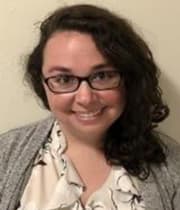Philanthropically funded music therapy program helps NICU patients be their best little selves

Music has long been linked to healing. From surgeons turning to their favorite tunes for stress relief in the operating room to patients’ health and well-being improving when hearing specific songs, music is a way to process emotions and can serve as a soothing agent.
Recently, Catherine Clements, MT-BC, MTA, NICU-MT, a music therapist at MultiCare Tacoma General Hospital’s Neonatal Intensive Care Unit (NICU), shared the power of this medium through a heartbeat song.
“Generally, heartbeat songs are done when an infant is going to pass away as a legacy gift for their family,” she says. “If they’re stable enough to have the vent turned off for 10 seconds, I can record a heartbeat. This situation was a little more special, as I made the recording for a mother who was also in the hospital.”
“The song was an amazing thing Catherine put together for that family, and it brought such joy,” adds Teresa Wynn, RN, MN, CDMS, NICU assistant nurse manager.
In June 2021, philanthropy funded Catherine’s position — through the Wilson Trust Music Therapy Project, a project of the American Music Therapy Association — to create these moments for families and bring music to NICU patients by way of humming, strumming and singing. To date, she’s helped more than 20 little lives.

Catherine sings to and rocks baby Austin very gently. The NICU patient responded well to his music therapy session, immediately calming in Catherine’s presence.
For infants who are 28 weeks old, Catherine begins with music listening, where she enters the room and perhaps brings a guitar along for some bedside lullabies. When patients are 30 to 32 weeks, she’ll try holding them and humming. If they’re not overstimulated by these actions, Catherine will sing with words, eventually adding in touch for a tactile sensation. If the baby is still okay, she’ll start to rock.
“With this, they would be hearing, feeling and moving through space all at the same time, which is a huge deal for these babies,” Catherine explains. “Not only does this help with the development in their brain, but it’s also helping them integrate their nervous system — making overstimulating things like diaper changes and bath time easier. And using the lullabies with these infants is helping supplement language development.”
About 30 percent of the music therapist’s time is also spent with patients who are in the NICU for the long term — a month or longer. All sessions last about 20 minutes to prevent overstimulation, setting patients up for success and not tiring them out.
“The goal of the program is to help further that development in a positive, minimally invasive way so that we can set them up for the best life possible,” Catherine says. “I enjoy getting to help these little innocent beings go forward and be who they’re supposed to be.”
Teresa and her team have also seen what a difference music therapy has made in the NICU.
“I’m really proud of Catherine. She’s been working hard to create meaningful experiences for our families and patients,” Teresa says. “We’re so lucky to offer music therapy in our NICU. This program is a wonderful example of how we truly work together to provide the best care.”
Currently, Catherine is in the NICU about 10 hours a week. With further community investment, she envisions expanding music therapy to other parts of Tacoma General Hospital.
“First, I’d like to give a huge thank you to our donors,” Catherine says. “I would also love to grow this program not only in the NICU but also throughout all kinds of different units because it’s so effective. Music can help with a variety of issues, and often, people will sing before they speak again following a brain injury. I have a patient right now who was so excited to come here with their baby because they heard we had music therapy. And I want to spread that excitement throughout the hospital.”
You can help set up Tacoma General NICU babies for success by supporting innovative approaches to care like music therapy through the MultiCare Health Foundation.




